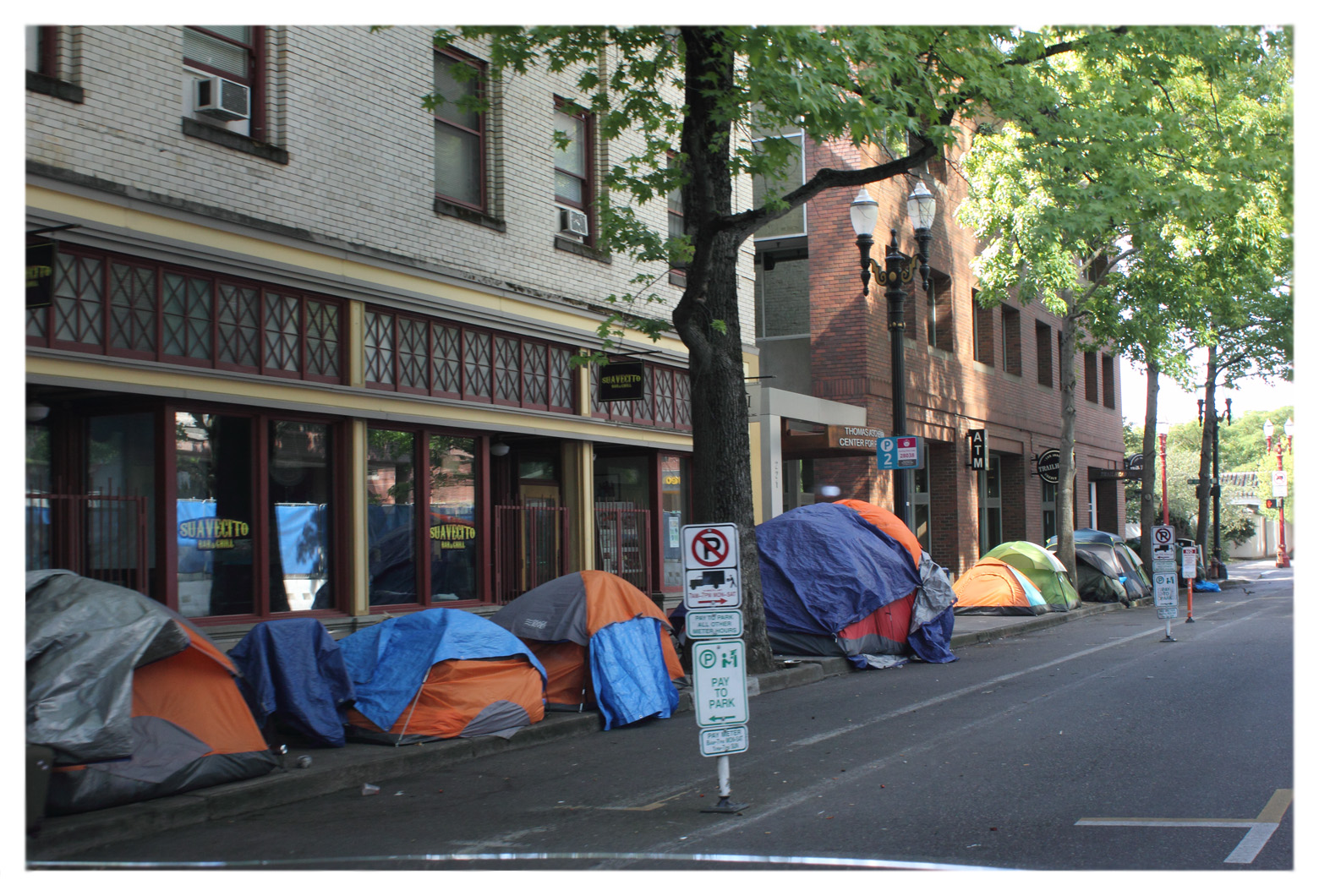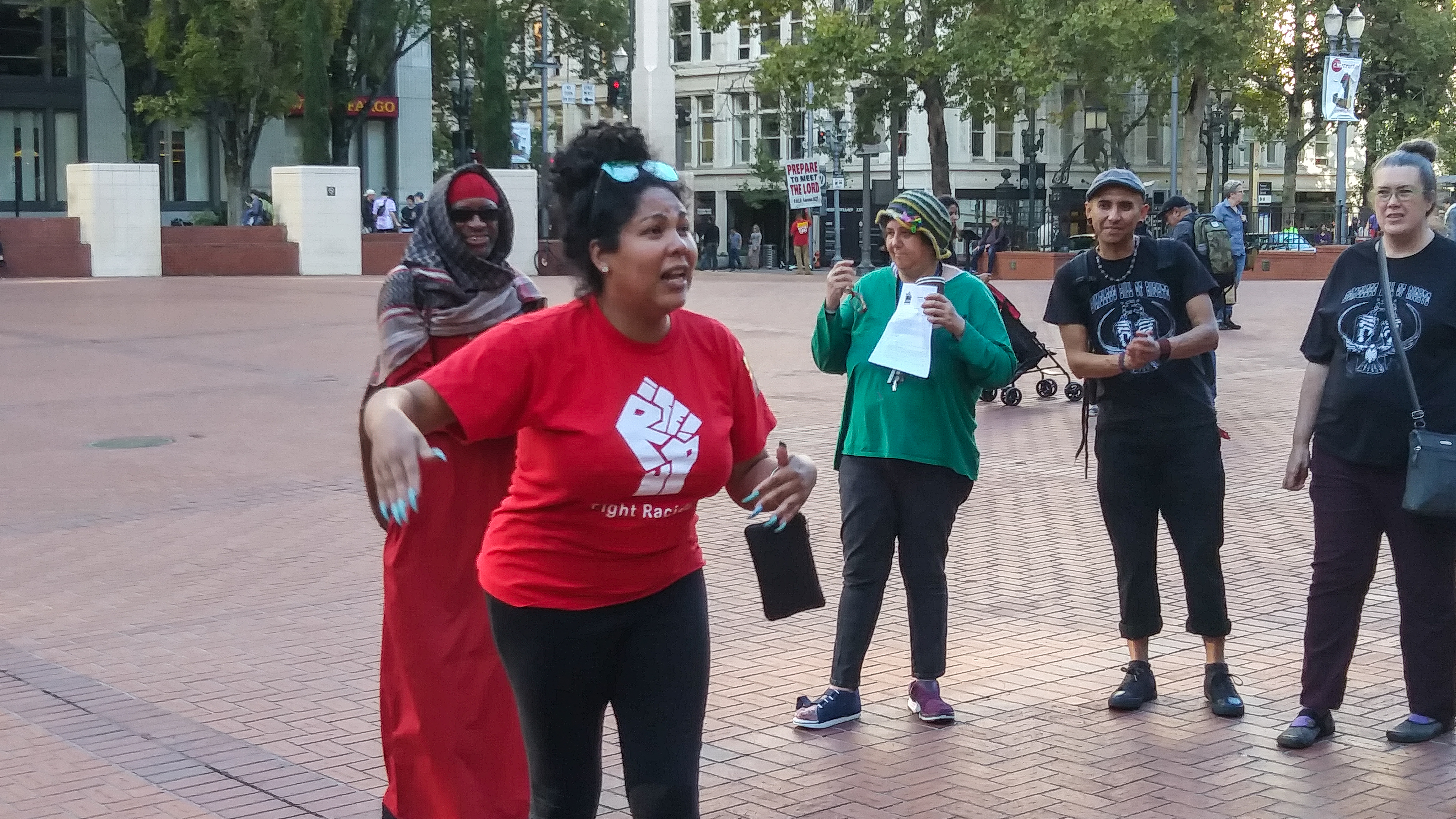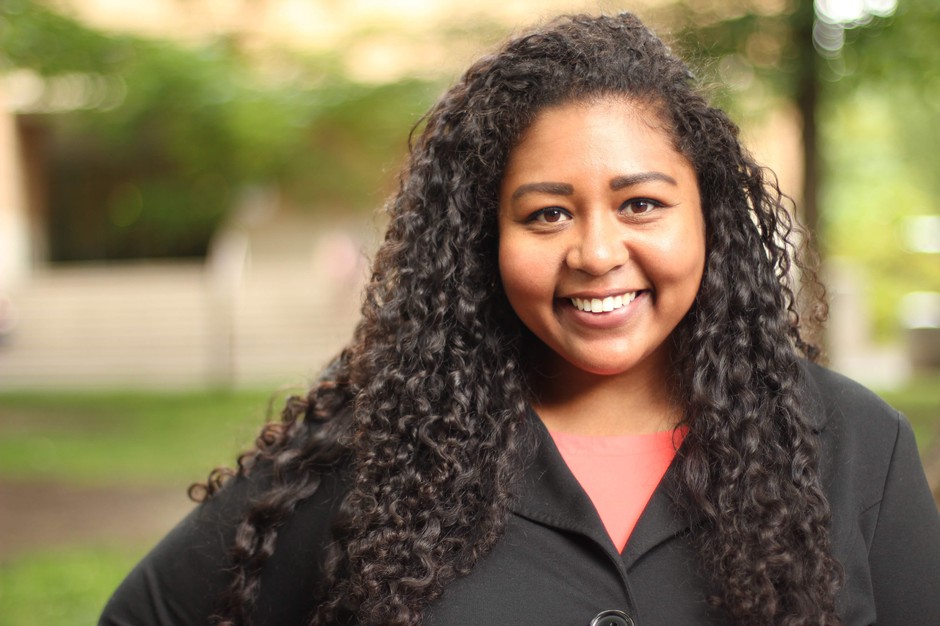Houselessness is endemic across the West Coast. Whereas houselessness in the United States dropped by over 10% in the last decade, it increased here by 15%. Various West Coast cities have responded with controversial sit-lie ordinances—municipal laws prohibiting sitting or lying on a sidewalk or certain public spaces. As critics have noted, this strategy effectively criminalizes houselessness by prohibiting “mundane and everyday behavior.” Now, Oregon is mobilizing to ban the use of such ineffective laws.
On Feb. 1, Oregon House Speaker Tina Kotek introduced House Bill 3115 (H.B. 3115). The bill limits a municipality’s ability to charge persons for sleeping or sitting in public spaces. However, H.B. 3115 does not ban anti-camping laws. The bill’s language is vague and allows municipalities mostly free reign, as long as their regulations are “objectively reasonable,” based on the “totality of the circumstances.” The bill would allow unhoused individuals to sue cities that regulate houselessness in an objectively unreasonable manner.
Proponents defend the wording as enabling consideration of unique circumstances. But this only ignores the reality H.B. 3115 fails to confront. By insipidly handling only one form of discrimination, H.B. 3115 overlooks the socioeconomic realities of houselessness and the moral failings of sit-lie ordinances—both of which boil down to basic truisms. Houselessness results from a misallocation of resources—failing to construct and place people into vacant housing—which state-level organization can improve. Sit-lie ordinances are also radically inhumane strategies that must be recognized for their abhorrent moral failings. No response can be effective without confronting the underlying tensions in allocating housing and allowing sit-lie ordinances (or their derivatives).
It is mainstream political ideology that allowed the bill to come along without addressing the tensions. Liberal ideology is resistant to altering neighborhoods—particularly when it is one’s own—frequently adopting anti-displacement rhetoric. On the other hand, conservative ideology justifies criminalizing houselessness—the argument being that it’s easier to be houseless when there are camps one can join so we should not allow camps to be established. They would rather the issue be dealt with via charities, believing the government’s only obligation is safety—i.e., removing camps that make people uncomfortable.
Liberal discourse on housing in Portland is often constrained to neighborhoods—e.g., the Eastmoreland Historic District. This is a relevant discussion to have when empowering marginalized communities, such as work done by the Albina Vision Trust, where development needs to be mindful of past and present discrimination. However, there is an important distinction between the proposals for Albina and Eastmoreland, in that the latter is one of the wealthiest neighborhoods in the city. It’s not hard to believe wealthy neighborhoods would be able to adapt to much-needed housing development. By not allowing more dense housing in areas that can adjust to them, it incentivizes newcomers to move to areas where housing is already cheap.
Newcomers look for cheap housing since they tend to have lower incomes than the state average. At the same time, they’re more likely to be college-educated, which alters the long-term trajectories of the local economy and increases growth. Without the appropriate construction and housing subsidies, there is a risk of pushing out individuals that cannot compete with college graduates for jobs or housing. It’s a shame that H.B. 3115 fails to respond to these conditions since targeted policy solutions can not only help residents remain in their neighborhoods but also rise economically with them.
Granted, one might claim that this isn’t the bill’s focus—it’s intended as a response to sit-lie ordinances. Even accepting that, it still leaves a lot to be desired, not only because the “ban” is infirm. Sit-lie ordinances criminalize houselessness, yet they aren’t the only policies that do so, nor are their (conservative) presuppositions exclusive to laws.
Treating houselessness as a crime comes from believing that unhoused individuals create a danger to property and property-owners—best dealt with by not allowing unhoused communities to exist on their own terms. This is visible in the city government’s actions in the painful Laurelhurst sweeps and Hazelnut Grove evictions, two unhoused communities oriented to support the needs of its members. City officials, imposing alternative housing and locations, create serious issues—e.g., failing to create a sense of community, rules forcing residents to look for other housing, drug and/or alcohol policies, disallowing self-governance. This strategy strips away the autonomy of houseless people and imposes a set of market-based expectations.
Presupposing that it is within a government’s right to coerce unhoused people to “get a job” or “get help” is based on the simple fact that, as the U.N. reports, there exist fallacious misconceptions regarding poverty and welfare in the U.S. These myths uncritically propagate through society—myths that poor people are lazy, welfare recipients are leeches, funding welfare makes people not want to work, that panhandlers just need a “real” job. They serve as a rationale for hatred of unhoused people in a world for which “[m]oney has become the grand test of virtue.” In failing to take a firm stance against these shameful beliefs, by not outright banning sit-lie ordinances or laws like it, H.B. 3115 severely lacks the vigor needed to redeem decades of mistreatment.
H.B. 3115 does deserve some credit. It does move legislation in the right direction, though only as far as has been moved by courts. It provides an avenue for unhoused communities to challenge unfair enforcements, though there are obvious limits to this benefit—e.g., gauging whether something is objectively unreasonable, one’s ability to acquire an attorney, estimation and payment of the costs of objectively unreasonable measures, what might need to be done after objectively unreasonable measures have been acted on. Thus, the credit that may be given to H.B. 3115 is qualified by its equivocal language and lack of zeal in defending unhoused communities.
The challenges faced by houseless people, personally and systemically, will not be solved by H.B. 3115. The lack of targeted policies in a growing economy will continue to push out poorer households with less educational attainment. Obstruction of development and rezoning by wealthy neighborhoods will continue to exacerbate our affordable housing shortage. And the continued acceptance of houselessness as a crime or danger to society means that the least-fortunate members of our community will be lambasted. If our state and municipal government want an effective response to the houselessness endemic, it will need more to address the complexity of housing and social attitude towards the unhoused.
At the same time, the efficacy of any response also depends on locals. Combating privilege is crucial to building in areas where households can more easily adapt to development without being displaced; this means getting involved in discourse about zoning and land-use, possibly with organizations such as 1000 Friends of Oregon. Locals are also capable of combating the harmful myths about houseless communities from the ground-level, by means ranging from supporting grassroots organizations such as Street Roots to speaking with their neighbors on the subject, especially any unhoused members.
Until then, though, H.B. 3115 is a piddling effort to overcome deplorable strategies that never should have existed in the first place.






